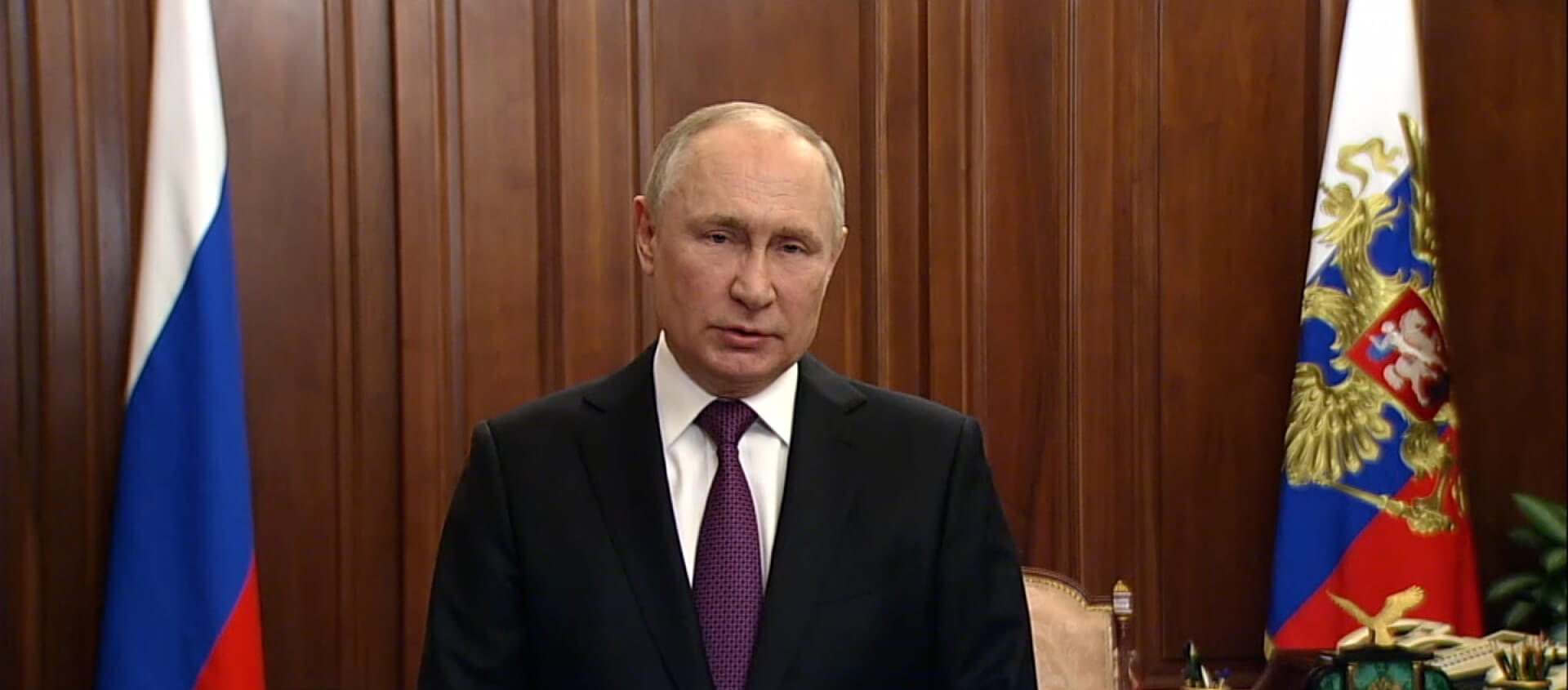Comments
- No comments found

Russia is surviving economic sanctions by building strong ties with China, monitoring closely its oligarchs, and developing its own financial system.
Despite the several Western sanctions, Vladimir Putin recently announced Russia's recognition of the independence of two breakaway republics in eastern Ukraine.
Although Europe remains its first financial partner, Russia has taken a number of strategic measures in recent years to protect its economy.
Russia is keen on expanding its territories. While Vladimir Putin announced on Monday (February 21st) Russia's recognition of the Republics of Donetsk and Lugansk, two self-declared secessionist republics in eastern Ukraine, the Russian Foreign Ministry on Tuesday called on "other states to follow his example." If Vladimir Putin has so far been careful not to launch a massive invasion, the threats of "severe" Western sanctions seem to have little hold on him. Already faced with a number of punitive measures decreed after the annexation of Crimea in 2014, the Russian president has taken several initiatives in recent years to cushion the impact of sanctions on the economy of his country. Here is how Russia is protecting its economy from Western Sanctions.
On May 21, 2014, barely two months after the annexation of Crimea by Russia, Vladimir Putin carried out a real coup by signing a historic gas agreement with China worth $400 billion over a period of thirty years. Although negotiations were started long before the Russian incursion into Ukraine, this contract nevertheless marks a major strategic turning point according to Jean-François Di Meglio, finance expert and president of Asia Centre.
"The two countries have many historical rivalries over Kazakhstan, Mongolia or even Siberia which greatly complicate their relations. But Vladimir Putin has understood that developing this economic partnership could allow him to maintain an aggressive position in his sphere of influence in the west. China, which despite its economic power remains isolated, is gaining an ally against its American rival. In 2021, Beijing and Moscow conducted several joint military exercises that hinted at the possibility of a military alliance between the two countries, amid growing tensions with the United States.
Trade between the two neighbors has grown from $10.7 billion in 2001 to nearly $140 billion in 2021 and is set to expand more with existing projects like the Power of Siberia gas pipeline reaching full capacity of 36 bcm/year and the launch of new projects like Power of Siberia 2 with 50 bcm/year capacity.
Oligarchs at the heart of Putin’s inner circle and banks which have bankrolled the Russian occupation of Crimea have been targeted by the first wave of UK sanctions in response to Russia’s further violation of Ukraine’s sovereignty. Russia’s ultra-wealthy oligarchs have lost $32bn (£23.5bn) so far this year, and looming sanctions mean even more of their wealth could be wiped out.
Vladimir Putin had launched an 'elite nationalization' program intended to induce officials and businessmen close to power to reduce their dependence on Western assets and legalize their possessions abroad. This policy has been crowned with success: an increasing share of the income from wealthy individuals is now invested in the country, and former officials no longer buy castles in France or ocean-going yachts, but chain stores, office complexes, factories and restaurants in Russia.
Russia is establishing new financial information transmission systems to protect itself from Western sanctions. The Kremlin has developed its own financial messaging System for Transfer of Financial Messages (SPFS) to remove its dependence on the Swift financial system, now connected to the Chinese interbank network CIPS (China International Payments System). A tool which, of course, would offer an alternative in the event of exclusion, but remains far from being able to compete with Swift.
Even if it may be subject to a certain number of state influences, Swift is a supranational institution which leaves a form of independence to its members.
Leave your comments
Post comment as a guest